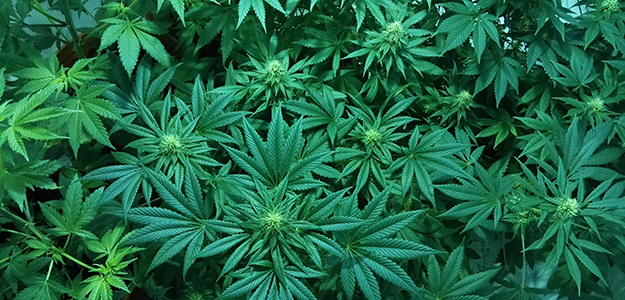 Some cancers love bone. They thrive in its nutrient-rich environment while gnawing away at the very substrate that sustains them, all the while releasing inflammatory substances that cause pain — pain so severe that opioids often are prescribed to allay the agony.
Some cancers love bone. They thrive in its nutrient-rich environment while gnawing away at the very substrate that sustains them, all the while releasing inflammatory substances that cause pain — pain so severe that opioids often are prescribed to allay the agony.
But opioids recently have been denounced for their addictive nature. This summer, the nation's opioid crisis was declared a national emergency.
 Long before that, Todd Vanderah, PhD, of the University of Arizona had been seeking ways to create alternative analgesics. He and his colleagues are now seeing promise in a specific class of chemical compounds that may help people find pain relief brought about by metastatic breast cancer.
Long before that, Todd Vanderah, PhD, of the University of Arizona had been seeking ways to create alternative analgesics. He and his colleagues are now seeing promise in a specific class of chemical compounds that may help people find pain relief brought about by metastatic breast cancer.
Those compounds, says Vanderah, head of the Department of Pharmacology in the College of Medicine – Tucson, are unique, non-psychotropic cannabinoids. In other words, they do not bring about the euphoria typically associated with cannabinoids. What's more, these particular chemical compounds help slow bone loss, unlike opioids, while slowing the proliferation of the cancer. In addition to pharmacology, he's also a professor of anesthesiology, neurology and physiological sciences.
Vanderah and his colleagues have published several peer-reviewed studies investigating unique cannabinoids' analgesic viability as well as the mechanisms behind opioids' addictive properties.
The latest studies, says Vanderah, show that sustained opioid use in metastatic cancer may enhance bone loss an expert on opioid addiction, whereas non-psychotropic cannabinoids actually inhibit bone loss and pain.
A recent publication(link is external) by Vanderah and his colleagues in the journal Neuropharmacology demonstrated that the combination of the non-psychotropic cannabinoid with a low dose of an opioid resulted in pain relief while significantly reducing the addictive property of the opioid.
Researchers are now using different kinds of cannabinoids to slow the proliferation and spread of cancer. Vanderah says there are 400 chemical compounds within a marijuana plant, with only one or two being tested for medicinal use. Studies so far have shown that cannabinoids slow the spread of brain and colon cancer in addition to breast cancer.
"It won't kill the cancer cells off, but it slows the proliferation," he says, adding that this finding was something of a delightful surprise. "Now we're trying to figure out how the cannabinoid slows the breast cancer proliferation.
"That's one of those things I love about science: when we don't expect something to happen and then we end up working another several years on a project that we thought would be done with one or two publications."
EXTRA INFO
Vanderah on Governor's Task Force
As part of Gov. Doug Ducey's Council on Healthy People, Places and Resources, a task force will focus on distinct facets of Arizona's opioid crisis: reducing the illicit supply of opioids; reducing the prescription supply; reducing public and patients' demand; preventing overdose deaths; and prevention, intervention and treatment. The goal is to reduce the number of opioid deaths in the state by 30 percent over the next two years.
A group that includes the UA's Todd Vanderah is focusing on the demand for opioids. Vanderah says demand is driven partly by the fact that opioids easily mitigate pain compared with options such as physical therapy, which take longer to get people back on their feet. Everyone wants a pill to take away the pain so that they can get back to their lives, but this may be masking underlying issues, Vanderah says.
"Alternative methods don't give people that euphoria, either," he says. "And when you have chronic pain, there's anxiety and depression that comes along with that pain. Narcotics can ease some of that anxiety and depression. They work well, but the problem is they're addictive."
Vanderah says one way to decrease opioid demand is to educate prescribing physicians and the public: "People have to be aware that these medications can be very dangerous. We need to come up with better alternative methods and have the public realize that chronic pain is terrible, and we want to help, but chronic pain often does not lead to death, whereas narcotics are much more likely to kill if not taken properly or controlled."
For more about the opioid epidemic from the Arizona Department of Health Services, click here(link is external).
Original story: https://uanews.arizona.edu/story/nonpsychotropic-cannabinoids-show-promise-pain-relief

